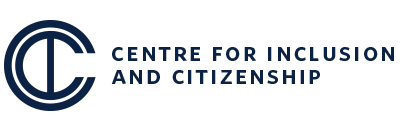The following is a commentary by CACL distinguished associate, Audrey Cole, in response to a National Post article titled, Euthanasia may save $139M, study says.
Back in the ’90s, in Ontario, a Minister of Health was forced to resign from Cabinet because of the inadvertent naming in the Provincial Parliament of a patient with extremely high medical costs. People were shocked to realise not only that individual names and personal health costs to the last cent were identifiable by government but also that such information could be disclosed by government to the public at large.
That was certainly not an expectation of socialised medicine as we understood it! In fact, the opposite was and remains, true! As we were told after that unfortunate disclosure, such information is collected in Ontario only for the purpose of paying doctors for their individual services to individual patients. That personal health information is not available to other than the requisite government financial services and had been inadvertently included in the Minister’s Notes on the specific case. To disclose such information is unarguably unethical!
One of the fundamental and most important principles of the kind of medical care we enjoy in Canada is that neither individual cost nor personal wealth are criteria for participation. Never, for any reason, should socialised medicine cause any one of us to question either our entitlement to appropriate care or our share of the total cost. We are in this system together irrespective of our circumstances. Obviously, those overall costs must be and are addressed by our national and provincial administrative and political systems. Those systems are designed to ensure that we do not further jeopardise our personal and sometimes precarious health and well being by worrying about our individual cost to society at large! That, surely, is a fundamental assumption in a progressive democratic society such as the one in which we live.
I stand to be corrected but, in my 70-year experience of socialised medicine (UK and Canada), I cannot believe that I have misunderstood its fundamental purpose. I have vivid memories from my pre-socialised medicine childhood in the UK, of both my terror when hiding from the debt collector as he came to collect the money for my latest, absolutely necessary but at that point not affordable visit to the doctor and my personal shame in being the cause of this family predicament. I would not want fellow Canadians of any age ever again to go through those kinds of fears and notions.
Yet, I was bluntly reminded of those long ago fears and that shame as I read Sharon Kirkey’s piece on the recent University of Alberta cost/benefit study on euthanasia (Euthanasia may save $139M, study says, NP edition, Ottawa Citizen, January 24, 2017).
I do not question the arithmetic of the U of A study. I am not an expert but I presume that the numbers were carefully researched and analysed. I do question the ethical thinking that led to the initial proposal, its design, its funding and the carrying out of the study. The explanation by the team’s spokesperson Dr. Aaron Trachtenberg, that “There was no agenda to this cost analysis,” just doesn’t ring true to my ears. Surely, all research has an agenda of some kind if only a search for the truth! To the argument that “We are definitely not suggesting that medical assistance in dying be chosen over any other way of dying. … We’re just trying to describe the reality that may (my emphasis) exist in Canada,” I can only ask, “Why?” Why was this common sense situation the subject of a study?
I cannot believe that people in the academic community could not foresee the implications of such an unnecessary study. Of course it could affect the decisions of people whose mental innocence leads them to believe themselves a burden on family or society. Of course it could affect the decisions of people led to believe that their only value rests in economics rather than humanity.
As an elderly woman (89) with a 52-year-old son who has a very severe intellectual disability, I am threatened and my son is threatened by the publication of this study!
For me, its main message is not related to the stated intent. Its main message to me is “Watch out!” And heaven help those of us who can’t! That does not fit the image of the Canada in which I chose to live.
– Audrey D. Cole, O.Ont.
